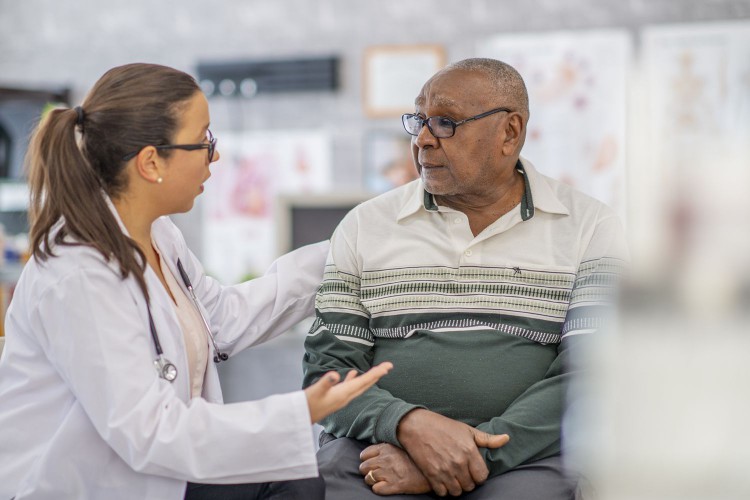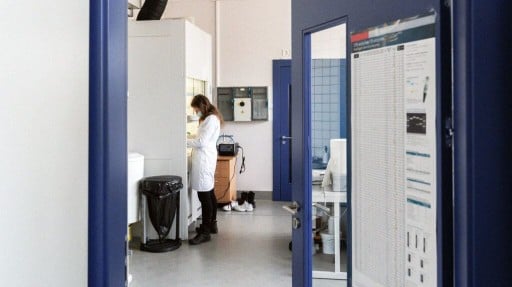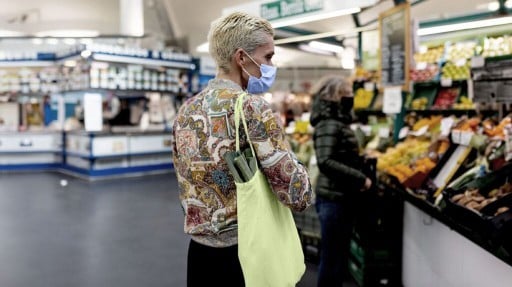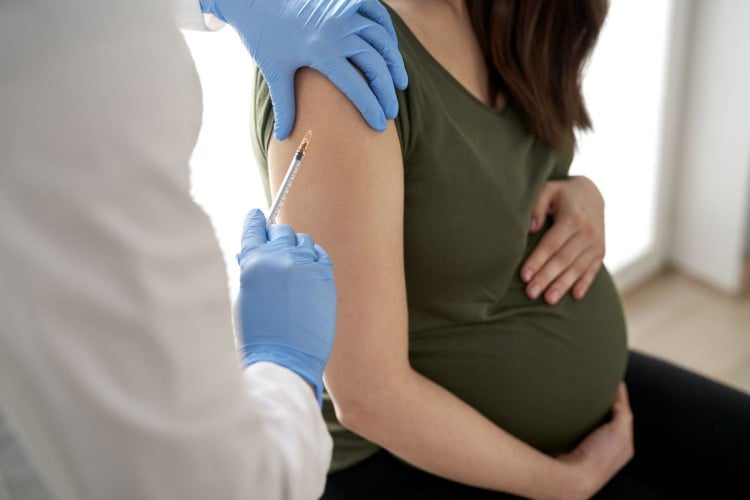- New research found a link between type 2 diabetes and colorectal cancer risk in African Americans with low socioeconomic status.
- The strongest association was detected in participants with recent diabetes diagnosis and without recent colonoscopies.
- Experts recommend adhering to standard screening practices, as well as following certain lifestyle habits that are well-known to lower the risk of type 2 diabetes.
Type 2 diabetes is associated with an increased risk of developing colorectal cancer, according to a new study.
The link was strongest in participants with a recent diabetes diagnosis and without a recent colonoscopy or colon cancer screening.
In the study, the majority of the 54,597 study participants were African American with low socioeconomic status (SES), adding necessary nuance to the diabetes-cancer connection.
The National Institutes of Health reports that African American adults living in the U.S. are nearly twice as likely to develop type 2 diabetes as white adults—this racial disparity has been increasing for 30 years.
Biological factors and lifestyle factors, including obesity, are said to play a role in this disparity.
“The connection between type 2 diabetes and colorectal cancer (CRC) is particularly significant in African American individuals and those with low socioeconomic status,” said Wael Harb, MD, board-certified hematologist and medical oncologist at MemorialCare Cancer Institute at Orange Coast and Saddleback Medical Centers in Orange County, California.
“These groups often experience a higher burden of type 2 diabetes and face increased CRC risk,” he told Health.
The new findings also suggest completing colonoscopies or screening tests for colorectal cancer may weaken the association between type 2 diabetes and colorectal cancer.
From this, the researchers suggest diabetes prevention and management may reduce colorectal cancer occurrence and improve prognosis, particularly in African-American people and those with low socioeconomic status.

Getty Images / FatCamera
Linking Type 2 Diabetes and Colorectal Cancer Risk
In the study, biological mechanisms like hyperinsulinemia and hyperglycemia were identified as a potential explanation for the connection.
Hyperinsulinemia is when insulin resistance creates an abundance of insulin in the blood. Hyperglycemia refers to high blood sugar levels.
The researchers also noted differences in access to health care and smoking cigarettes as contributing factors that can help explain this link.
Previous studies have demonstrated a strong, causal association between type 2 diabetes and colorectal cancer. This means diabetes is an emerging risk factor for CRC.
One review from 2022 suggests there is a noticeable increased risk of CRC in patients with a prior type 2 diabetes diagnosis.
Moreso, underlying type 2 diabetes has been shown to have an adverse impact on colorectal cancer prognosis.
Diabetes and cancer experts agree, saying several mechanisms at play can explain the link between type 2 diabetes and CRC risk.
“Both diseases share common risk factors, including socioeconomic status, smoking, race and ethnicity, and nutrition factors,” Rasa Kazlauskaite, MD, MS, associate professor at Rush University in the Department of Internal Medicine, Division of Endocrinology and Metabolism, told Health.
She added that diabetes may fuel colon cancer cells.
Hard explained that biological factors like hyperinsulinemia and hyperglycemia, both of which are common in diabetes, can also contribute to CRC risk.
“Additionally, disparities in healthcare access and quality, which are more prevalent in these demographics, might affect both diabetes management and CRC screening, potentially exacerbating the risk,” Harb said.
Colorectal Cancer
The Role of Sociodemographics in Health Risks
Sociodemographic factors take into consideration both social and demographic influences on health.
These include factors like age, race and ethnicity, gender, sexual orientation, marital status, income, education, and employment.
“Sociodemographic factors are extremely important, as competing priorities may affect choice of food, smoking, screening practices, and even the treatment for both diabetes and colon cancer,” said Kazlauskaite.
For example, she explained that smoking stands out as a statistically significant factor in increasing the hazard ratio for colorectal cancer in diabetes.
However, Kazlauskaite noted that this new study might have been not particularly designed to dissect whether the difference in colorectal cancer hazard due to diabetes was due to socioeconomic status and due to race/ethnicity.
”Sociodemographic factors may be related to values hierarchy and competing priorities, which the study was not designed to investigate,” she told Health.
Younger Adults Are Being Diagnosed With Cancer More Than Ever Before—Here's What to Know
Tips for Reducing Risk of Type 2 Diabetes
According to Harb, effectively managing type 2 diabetes is crucial in reducing CRC risk.
“Managing diabetes through lifestyle changes and hypoglycemic therapy can potentially mitigate the metabolic dysfunctions (like hyperinsulinemia and hyperglycemia) that contribute to CRC development,” he said.
Kazlauskaite recommends the following tips for reducing type 2 diabetes risk:
- Eat nutritiously: Avoid highly processed foods and instead choose foods that are high in natural fiber
- Adopt an active lifestyle: Aim to eliminate sedentary days by ensuring you get in at least 5,000 to 7,500 steps a day
- Get enough sleep: Aim for 7 or more hours of sleep per night
- Modify harmful habits: Stop or never start harmful habits like smoking, drinking alcohol, and using narcotics that may damage the pancreas, liver, and overall metabolism
- Reduce stress and anxiety: In particular, do not use food or hazardous habits to deal with anxiety and stress
- Testing: Diabetes screening can detect early signs
- Treatment: In early stages, work with your healthcare provider or certified diabetes specialist to reverse diabetes
Kazlauskaite also suggests avoiding excess weight gain, choosing non-caloric beverages, using fiber supplements if necessary, and doing your best to avoid preventable conditions like asthma that may require medications like steroids that can contribute to diabetes.
Next Steps If You’re Already Living with Type 2 Diabetes
If you’re already living with type 2 diabetes, Harb recommends adhering to standard colorectal cancer (CRC) screening guidelines, such as regular colonoscopies.
“The association between diabetes and increased CRC risk highlights the need for diligent screening,” he explained. “Although the screening recommendations for diabetic individuals align with those for the general population, the emphasis on adherence is more pronounced due to the heightened risk.”
He said that regular colonoscopies can detect early-stage CRC, which allows for timely intervention and potentially mitigates the negative impact of diabetes-related metabolic changes on CRC risk.
“Patients with type 2 diabetes should consult their healthcare providers to establish a personalized screening schedule based on their overall health and risk factors,” said Harb.








